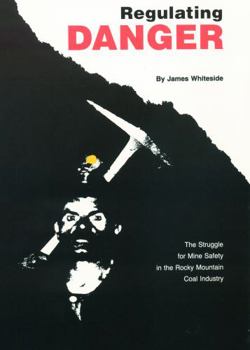Regulating Danger: The Struggle for Mine Safety in the Rocky Mountain Coal Industry
From the 1880s to the 1980s more than eight thousand workers died in the coal mines of the Rocky Mountain states. Sometimes they died by the dozens in fiery explosions, but more often they died alone, crushed by collapsing roofs or runaway mine cars. Many old-timers in coal-mining communities and even some historians have blamed the high fatality rate on ruthless coal barons exploiting miners in the single-minded pursuit of profit. The coal industry preferred to blame careless miners. James Whiteside looks beyond those charges in seeking to explain why the western coal mines were (and, to some degree, still are) dangerous and why territorial, state, and federal laws failed for so long to make them safer. Regulating Danger is the first extended study of the coal-mining industry in Colorado, New Mexico, Utah, Wyoming, and Montana. It exceeds the scope of traditional labor history in focusing on working conditions and the problems of workers instead of unions and strikes. After examining the inherent physical dangers of the work, Whiteside shows how the interplay of economic, social, and technological forces created an envi-ronment of death in the western coal mines. He goes on to discuss evolving industrial and political attitudes toward issues of responsibility for mine safety and government regulation and the fundamental changes in the industry that brought about safer working conditions.
Format:Hardcover
Language:English
ISBN:0803247524
ISBN13:9780803247529
Release Date:October 1990
Publisher:University of Nebraska Press
Length:279 Pages
Customer Reviews
0 rating





